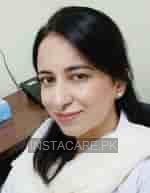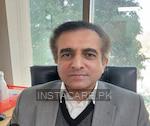Neuromuscular Diseases - Symptoms, Risk factors and Treatment
Last Updated On Tuesday, February 17, 2026
Neuromuscular Diseases in Urdu
اعصابی امراض وہ ہیں جو اعصاب کو متاثر کرتے ہیں جو رضاکارانہ عضلات کو منظم کرتے ہیں اور پورے جسم کے اندر رابطے کا کام کرتے ہیں۔ دماغ کے اندر، اعصابی ریشے موجود ہوتے ہیں جو مائیلین میان سے محفوظ ہوتے ہیں جو ایک حفاظتی تہہ کے طور پر کام کرتا ہے۔ اگر مائیلین میان کو نقصان پہنچا ہے، تو یہ آپ کے دماغ اور باقی جسم کے درمیان مواصلاتی مسئلہ کا باعث بنتا ہے۔ اعصاب کے خلیے، جنہیں نیوران بھی کہا جاتا ہے، برقی محرکات کی صورت میں معلومات کو ایک جگہ سے دوسری جگہ منتقل کرنے کے ذمہ دار ہیں۔ وہ پیغام کو دماغ سے عضو تک لے جاتے ہیں اور اس کے نتیجے میں عمل ہوتا ہے۔ اگر کوئی چیز ان پر اثر انداز ہوتی ہے، اگر وہ غیر صحت مند ہو جاتے ہیں یا مر جاتے ہیں، تو یہ سگنلنگ کے پورے میکانزم میں خلل ڈال سکتا ہے، جس کے نتیجے میں اعصابی تحریکوں میں خلل پڑتا ہے۔ اس کی وجہ سے پٹھے متاثر ہوتے ہیں جس کے نتیجے میں پٹھے ضائع ہوجاتے ہیں۔
Neuromuscular Diseases in English
Neuromuscular diseases are the ones that affect the nerves that regulate the voluntary muscles and act as communication within the whole body. Inside the brain, nerve fibers are present that are protected with a myelin sheath that acts as a protective layer. If the myelin sheath is damaged, it leads to a communication problem between your brain and the rest of the body. The cells of the nerves, also known as neurons, are responsible to transmit information in the form of electrical impulses from one place to another. They carry the message from the brain to the organ and result in the action. If anything affects them, if they become unhealthy or die, it can disrupt the whole signaling mechanism, resulting in disruption of nerve impulses. Due to this, muscles are affected, eventually resulting in muscle wasting.
Symptoms
The most common signs and symptoms of the neuromuscular disease are fatigue and weakness. These symptoms may worsen as the disease progresses. They may show up in infancy, childhood, or even childhood. They may show up as;
- Double vision
- Trouble swallowing
- Trouble breathing
- Muscle weakness that can lead to twitching, cramps, aches, and pains
- Muscle loss
- Movement issues
- Balance problems
- Numbness, tingling, or painful sensations
- Droopy eyelids
Conditions causing neuromuscular diseases
Conditions that cause neuromuscular diseases are;
- Amyotrophic lateral sclerosis (ALS)
- Botulism
- Cramp-fasciculation syndrome
- Myasthenia gravis
- Myotonic dystrophy
- Neuromuscular junction disorders
- Neuromyotonia (Isaacs syndrome)
- Elevated creatine kinase
- Fasciculations
- Motor neuron disease
- Muscle disorders
- Muscular dystrophy
- Peripheral neuropathy
- Congenital myasthenic syndromes
- Congenital myopathies
- Inclusion-body myositis
- Lambert-Eaton syndrome
- Mitochondrial myopathy
- Polymyositis
Causes and risk factors
Neuromuscular diseases can occur due to reasons like;
- Genetic tendency
- Gene mutation
- Autoimmune diseases
Diagnosis
The healthcare providers will take your complete history and check your reflexes. They will also focus on your family history. Make sure you tell them all the information accurately as it is essential to make a final diagnosis. They will also check your muscle's strength, your ability to hold things, and a complete history of the symptoms. Moreover, they will order other diagnostic tests to confirm the diagnosis. These diagnostic tests can be;
- Blood test
- MRI (magnetic resonance imaging)
- Lumbar puncture, also known as a spinal tap
- Genetic testing
- Muscle biopsy
- Nerve conduction studies
- Electromyography (electromyography)
Neuromuscular diseases are the ones that affect the nerves that regulate the voluntary muscles and act as communication within the whole body. The most common signs and symptoms of the neuromuscular disease are fatigue and weakness. The healthcare providers will take your complete history and check your reflexes. After the diagnosis, they will prescribe medications that can help manage the symptoms. Physiotherapy may help in the management of symptoms sometimes.



.jpeg)
